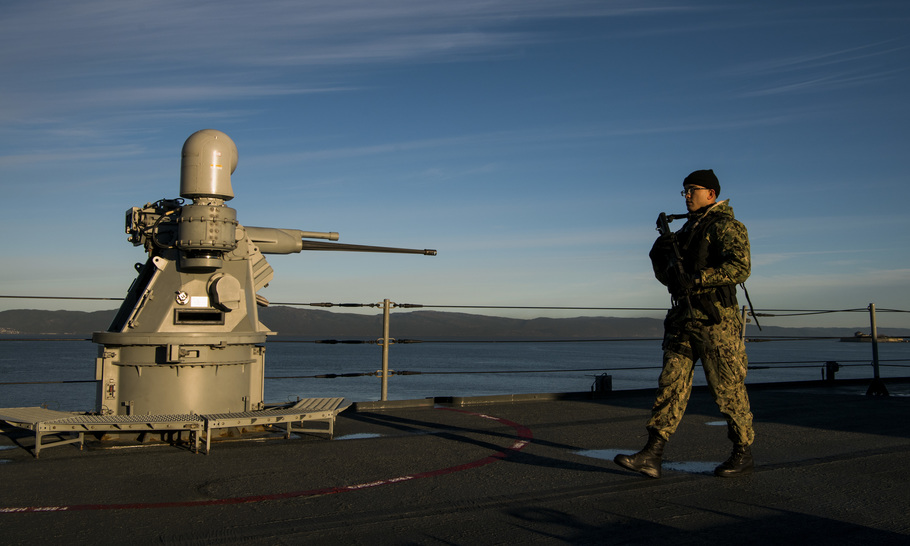If Nato is to last another 70 years, we must not kowtow to China

JONATHAN NACKSTRAND/AFP/Getty Images
By the end of today, we may (or may not) know when the Prime Minister will step down, though not who will lead us into the next phase of Brexit. By the end of this week, we may (or may not) have a better idea of whether Parliament still wants Britain to leave the EU, and if so what kind of Brexit it might be. Of one thing we may be sure, though: there will be no Brexit from the most important organisation to which this country belongs: Nato.
Next week the North Atlantic Treaty Organisation celebrates its 70th anniversary. This makes it eight years older than the European Economic Community, the predecessor of the European Union. As far as the British are concerned, we must hope and pray that it lasts another seven decades.
It is Nato, not the EU, that has kept the peace in Europe since 1945 — with the notable exception of the Balkan wars of the 1990s, which were outside its jurisdiction. Nato members eventually restored order there too. Putin’s adventures in the Caucasus and Ukraine were likewise possible only because they were “out of area” for Nato. Indeed, Nato’s only major failure has been in Afghanistan, far beyond its ambit.
Western Europe and North America, however, have enjoyed the longest period of peace in their history. No other military alliance comes close. So why should we worry?
Obviously, Putin’s Russia remains a threat — potentially and actually. Not only do its revamped forces menace Nato’s eastern borderlands, especially the Baltic states, but Germany is in the process of making itself more dependent on Russian oil and gas than ever. Turkey, still just about a Nato member, is buying Russian missiles. Even Britain is still accepting Russian largesse to prop up everything from our universities to our high-end property market.
The United States, still by far our most important ally, however, has long since identified a far more dangerous potential adversary: China. Here in Europe, we are still mesmerised by the fabulous wealth dangled before us by Beijing in return for acquiescence in its global takeover. It’s not so much ever closer union as an ever deeper kowtow.
Italy has just become the first G8 member to sign up for this. France and Germany stepped back from the brink this week when President Xi came to Paris — though perhaps not for much longer. All roads, it seems, now lead not to Rome, but to Beijing.
And Britain? Well, we have other things on our minds, from the Speaker’s interpretation of parliamentary procedure to the Irish backstop. Yet as we work ourselves into a frenzy about who might be our next Prime Minister, we might pause to consider what became of the last one. David Cameron, when he is not writing his memoirs and “chilling”, is Vice-Chair of the China-UK Fund, a satellite of the Belt and Road initiative, the largest infrastructure project in history.
Europe needs to rethink its attitude to Xi’s China. As Roger Boyes writes in today’s Times, the West needs “a consistent Nato-led strategy towards the likes of Huawei, 5G contracts and Chinese spookery”. Above all, the US focus on Chinese imperialism in Asia, Africa and Latin America must not be allowed to conflict with the American commitment to Nato. We all should know by now what happens to Europe without America.





